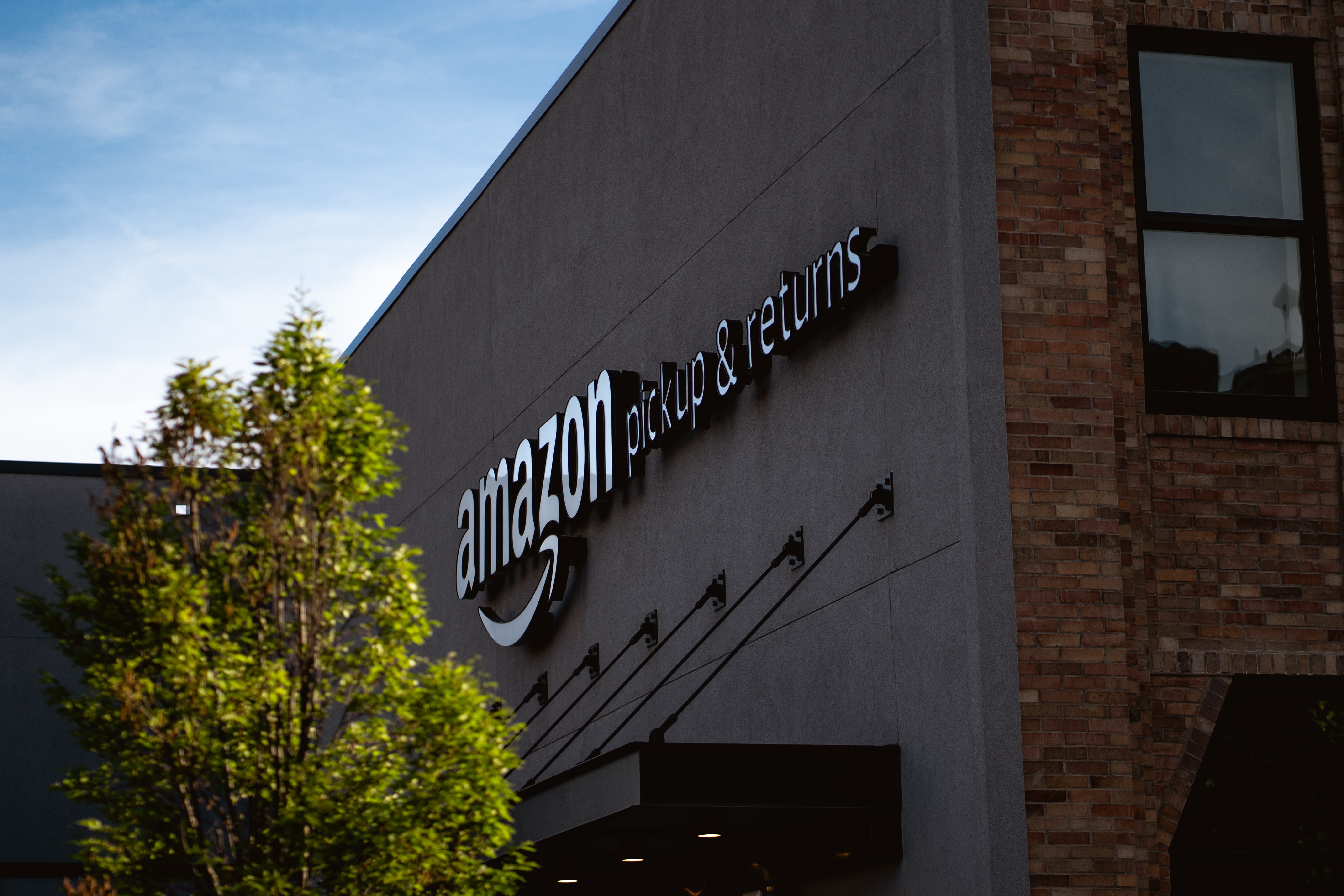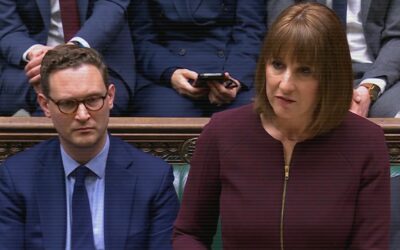Coming in at an enormous £12bn for 2021/22, the Chancellor’s announcement of a “super-deduction” on purchases of capital goods by businesses was one of the largest spending items in the Spring Budget. In fact, it was one of the largest single-year tax giveaways ever enacted by a government. According to the Office of Budget Responsibility’s policy costings database, you have to go back to the 2007 Budget when the basic rate of income tax was cut to 20% to find a tax change of a size comparable to the super-deduction.
With such a significant policy change we are asking how the proceeds of this tax cut will be distributed. Initial analysis by TaxWatch demonstrates that a company like Amazon UK Services would have their tax bill entirely wiped out by the new rules. The tax cut may also be a boon to capital intensive sectors such as infrastructure that have largely been protected from the worst impacts of the pandemic and that are required to spend large amounts on capital goods regardless of the incentives available to them.
Super expensing
Under the plans announced by the Chancellor, companies will be able to deduct 130% of the cost of “main rate” assets – more than the cost of the equipment itself – from their taxable profits in the year that they purchase it. This reduces substantially the amount of tax payable in the year the deduction is made. Main rate assets are defined as “plant and machinery” by HMRC, which has a broader meaning than is found in corporate accounts. It includes “items you keep to use in your business, including cars”, some fixtures and fittings and the demolition of existing plant and machinery.
Under normal accounting rules companies deduct a percentage of these costs in each year, so the cost is spread over several years.
The full expensing of capital expenditure (i.e. a 100% deduction on capital expenses in year one), has been a long term policy ask for some sectors and promoted by a number of think tanks and lobby groups in recent years.1
Who benefits from super expensing?
Super-expensing is a policy that overwhelmingly benefits larger businesses, because the UK already has a full expensing regime for smaller capital expenditures called the “annual investment allowance”. This was raised temporarily to £1m in 2020, but is usually £200,000.
The benefits of the expensing is also differentiated across sectors because companies in different sectors use and spend capital in different ways. For example, a factory will buy much more plant and machinery than a management consultancy firm where staff costs make up a higher proportion of the total costs of the firm. According to HMRC figures on capital allowances, the sectors with the largest capital allowances are manufacturing, retail, and information and communication. These three sectors accounted for a third of all capital expenditure in the country in 2017-2018, the last year when figures are available.
|
Sector |
Gross trading profit (£m) |
Capital allowances claimed (£m) |
|
Manufacturing |
42,151 |
14,430 |
|
Wholesale and Retail Trade, Repairs |
53,582 |
11,476 |
|
Information and Communication |
38,634 |
10,463 |
Table 1: Capital allowance claims by sector (Source: HMRC Corporation Tax Statistics 2020)
Many sectors that are big spenders on capital goods will have been largely sheltered from the worst impacts of the pandemic. For example, energy utilities, water companies, supermarkets and logistics companies which have all continued to provide essential services have large capital expenses. Think of all of the delivery trucks that have been bought over the last year.
However, there are industries that have been seriously impacted by the pandemic that also have high capital expenditure, for example, the airline industry. The impact on the retail sector of the pandemic has been highly differentiated between “non-essential” and “essential” retail.
Supercharging super-expensing
Multinational companies have a particular opportunity to take advantage of the new capital expensing rules. Profit shifting is the practice where profits are removed from the UK by a multinational company which in turn reduces their UK tax liability. However, many multinationals that engage in profit shifting still have significant costs in the UK. If a multinational company has significant capital expenditure in the UK it will be able to claim the new capital allowances reducing its already minimal profits and perhaps extinguishing its tax bill altogether.
For an example of how this works see our report on Netflix, which described how the company has managed to claim tax credits on its film production costs whilst moving revenues overseas.
Amazon
Amazon is a prime example of a company which has benefited from the pandemic. The company provides a direct to home delivery service at a time when shops have been forced to close and people have remained indoors. As a result, the company has seen its sales explode by 50% as a result of Covid-19.
It also spends significant amounts of money on capital goods, including lorries, vans, and warehouses.
Amazon’s European operations are based in Luxembourg, and it is not known how much in corporation tax that company pays in the UK. It is more than possible it pays nothing in corporation tax all in the UK, as the company has a net tax credit position. Amazon are also keen to stress that they do pay other taxes in the UK such as business rates and employment taxes. None of these would be impacted by the new super-deduction.
Amazon UK Services Limited, the UK service company that provides warehousing and delivery services for Amazon’s UK operations, made pre-tax profits of £102m in 2019 and had a corporation tax liability of £6.3m, largely due to the way some employees are paid in shares. According to the accounts of the company they also spent £66.8m on plant and machinery, £80.4m on office equipment, and £15.3m on computer equipment in the same year. If expensed at 130%, this would entirely wipe out the taxable profits of the company before any deductions for staff pay awards.
|
Amazon UK Services Ltd |
|||
|
2019 |
2018 |
Total |
|
|
Turnover |
£2,959,248,000 |
£2,345,057,000 |
£5,304,305,000 |
|
Profit before Tax |
£101,941,000 |
£75,381,000 |
£177,322,000 |
|
Tax |
-£6,328,000 |
-£1,060,000 |
-£7,388,000 |
|
Profit for the year |
£95,613,000 |
£74,321,000 |
£169,934,000 |
|
Tangible Assets – Additions |
|||
|
Plant and machinery |
£66,875,000 |
£196,930,000 |
£263,805,000 |
|
Office Equipment |
£80,421,000 |
£30,805,000 |
£111,226,000 |
|
Computer Equipment |
£15,346,000 |
£10,574,000 |
£25,920,000 |
|
Total |
£162,642,000 |
£238,309,000 |
£400,951,000 |
|
130% of Total |
£211,434,600 |
£309,801,700 |
£521,236,300 |
Logistics companies
Amazon is not the only company that has profited from the pandemic. The logistics sector has seen revenues increased with more parcels moving around the country. The data below shows that companies like DPD and Hermes would be able to make substantial reductions in their pre-tax profits over the next two years due to to the super-deduction if 2019 levels of capital expenditure were maintained or increased.
|
DPDGROUP UK Ltd |
|||
|
2019 |
2018 |
Total |
|
|
Turnover |
£1,028,134,000 |
£972,811,000 |
£2,000,945,000 |
|
Profit before Tax |
£135,093,000 |
£142,472,000 |
£277,565,000 |
|
Tax |
-£23,659,000 |
-£24,336,000 |
-£47,995,000 |
|
Profit for the year |
£111,434,000 |
£118,136,000 |
£229,570,000 |
|
Tangible Assets – Additions |
|||
|
Plant and machinery |
£11,424,000 |
£2,309,000 |
£13,733,000 |
|
Motor Vehicles |
£29,739,000 |
£217,000 |
£29,956,000 |
|
Office equipment |
£2,252,000 |
£1,121,000 |
£3,373,000 |
|
Computer equipment |
£3,248,000 |
£3,515,000 |
£6,763,000 |
|
Total |
£43,415,000 |
£3,647,000 |
£47,062,000 |
|
130% of Total |
£56,439,500 |
£4,741,100 |
£61,180,600 |
|
Hermes Parcelnet Limited |
|||
|
2020 |
2019 |
Total |
|
|
Turnover |
£860,037,000 |
£749,457,000 |
£1,609,494,000 |
|
Profit before Tax |
£46,213,000 |
£36,092,000 |
£82,305,000 |
|
Tax |
-£8,142,000 |
-£6,789,000 |
-£14,931,000 |
|
Profit for the year |
£38,071,000 |
£29,303,000 |
£67,374,000 |
|
Tangible Assets – Additions |
|||
|
Plant and equipment |
£12,469,000 |
£13,861,000 |
£26,330,000 |
|
130% of Total |
£16,209,700 |
£18,019,300 |
£34,229,000 |
Energy and infrastructure
Energy companies need to make huge investments in capital every year in order to keep the lights on. Many of these investments are not discretionary and therefore would be be made regardless of any incentives available. To the extent that super-expensing rewards companies for investments they would have made anyway then the policy represents a cash giveaway with little benefit to the public.
To illustrate the point, we took a look at National Grid, which runs the UK’s electricity grid. The company makes enormous investments in plant an equipment every year, which will now qualify for super-expensing.
|
National Grid |
|||
|
2020 |
2019 |
Total |
|
|
Turnover |
£14,540,000,000 |
£14,933,000,000 |
£29,473,000,000 |
|
Profit before Tax |
£1,754,000,000 |
£1,841,000,000 |
£3,595,000,000 |
|
Tax |
-£480,000,000 |
£339,000,000 |
-£141,000,000 |
|
Profit for the year |
£1,265,000,000 |
£1,502,000,000 |
£2,767,000,000 |
|
Purchases of plant property and equipment |
|||
|
Plant and equipment |
£4,583,000,000 |
£3,635,000,000 |
£8,218,000,000 |
|
130% of Total |
£5,957,900,000 |
£4,725,500,000 |
£10,683,400,000 |
Deferred taxation
It should be noted that increasing first year capital allowances is not all a one way street. Although the new rules will allow companies to write off the full cost and more of capital purchases in the year in which the expense is made for tax purposes, companies will not make the same deduction for accounting purposes. Instead the cost of these items will be expensed gradually over time.
Because the expense will have already been claimed against tax, then it will not be expensed again when the company deducts the expense from accounting profits in future years. This will lead to an appearance of higher tax rates in future years as items are depreciated, profits decreased and no future deduction is made for depreciation against tax.
However, this is the result of a timing difference and does not change the fact that companies will be able to deduct more from their taxable profits than they actually spend on capital goods.
Avoidance
Capital allowances have often been the target of avoidance schemes in the past, with banks seeking to use financial engineering to transfer capital allowances between companies to gain a tax benefit (see for example the case of Barclay’s Mercantile vs Mawson (Inspector of Taxes). It is therefore important that HMRC keep a close watch on the growth of any avoidance schemes resulting from the announcement in the Spring Budget.
Conclusions
The policy of super-expensing represents a huge cash giveaway to some large businesses operating in the UK. Although there will undoubtedly be some companies which need the support to help them recover from the pandemic, the relief is untargeted and will result in a substantial tax cut for companies which have done well throughout the Covid-19 crisis.
It will also benefit companies who were planning to make capital expenditure regardless of the incentives available, and potentially super-charge tax avoidance schemes which seek to exploit the new benefit.
As such, it is debatable whether this is the best use of public money to stimulate post pandemic recovery.
This research was featured in The Financial Times, The Guardian, and The Times, among others. It was also quoted in the House of Commons.
Photo by Bryan Angelo on Unsplash
1 See for example the Adam Smith Institute’s campaign against the so-called “factory tax” https://www.adamsmith.org/about-factory-tax



